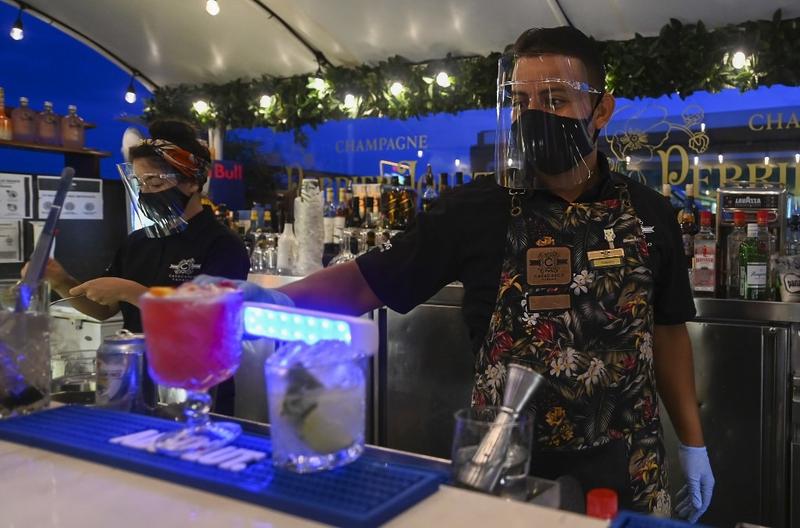 In this Sept 28, 2020 file photo, a barman sanitizes the glass of a drink at a restaurant during it's reopening after Panama's government relaxed the six-month confinement measures to fight the COVID-19 coronavirus pandemic, in Panama City. (LUIS ACOSTA / AFP)
In this Sept 28, 2020 file photo, a barman sanitizes the glass of a drink at a restaurant during it's reopening after Panama's government relaxed the six-month confinement measures to fight the COVID-19 coronavirus pandemic, in Panama City. (LUIS ACOSTA / AFP)
PANAMA CITY - Cooperation with China could be a key factor to help make Panama a scientific hub for Latin America, said Jagannatha Rao, director of the Institute for Scientific Research and High Technology Services of Panama.
Panama's position as a regional hub could create connections with China, and that would turn the Central American country into an incubator for scientific training and knowledge transfer in Latin America, said Jagannatha Rao, director of the Institute for Scientific Research and High Technology Services of Panama
Panama's position as a regional hub could create connections with China, and that would turn the Central American country into an incubator for scientific training and knowledge transfer in Latin America, he said.
Thanks to joint work in the fields of technology and innovation, Rao said his institute and Chinese research institutions had forged an important relationship.
There was also a two-way channel for sharing information on scientific research between Panama and China, he said, giving the visit of Bai Chunli, president of the Chinese Academy of Sciences, to Panama in 2018 as an example.
ALSO READ: Peru, Panama limit men and women to alternate days out to stall virus
In October 2018, Bai attended the National Congress of Science and Technology in Panama City, an event sponsored by the Panamanian Association for the Advancement of Science and the National Secretariat of Science, Technology and Innovation.
Rao said he values China's knowledge of and experience in the fight against COVID-19, adding that as it was the first country to bring the pandemic under control, China has a better understanding of the disease, something that could help Latin America.
In addition to the training of human capital, Rao said he saw many possibilities for cooperation with China through the establishment of a high-tech institution, such as the Panama Genomic Center, as well as the development of joint master's and doctoral programs.
READ MORE: Establishing ties with China good to Panama, says president
The development of bilingual science and technology communication, in both English and Spanish, was important, he said, noting that language would not be an obstacle to cooperation between China and Latin America.


